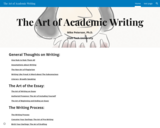
OER textbook for college composition courses.
- Subject:
- Composition and Rhetoric
- English Language Arts
- Material Type:
- Textbook
- Author:
- Mike Peterson
- Date Added:
- 10/05/2022

OER textbook for college composition courses.
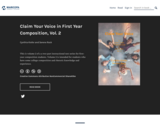
This is volume 2 of a a two-part instructional text series for first-year composition students. Volume 2 is intended for students who have some college composition and rhetoric knowledge and experience.
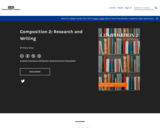
Composition 2: Research and Writing was created with the intention of providing a free, comprehensive Composition 2 textbook to the students of Connors State College in Oklahoma. This textbook is a compilation of several OER textbooks and resources with edits, revisions, and additions provided by Brittany Seay. This textbook focuses on the ins and outs of academic writing and research. It looks at the early stages of research from generating ideas and key term searches to creating projects that synthesize the information found from sources. This textbook also discusses academic writing with a particular focus on research writing.
Chapter 1 covers the idea behind research and why it is important
Chapter 2 covers finding and reading academic sources
Chapter 3 covers using the information found in academic sources
Chapter 4 covers putting together an academic research argument
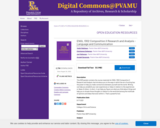
This OER packet contains the course materials for ENGL 1302 Composition II Research and Analysis that introduce you to the ways in which the act of writing has the power to help you make connections between yourself and the world. Writing can help you establish your own experiences or ideas in relation to the experiences or ideas of others. In short, it can help you figure out what you think about things and help you to situate those thoughts in relation to the world and among the multitude of opinions and ideas that exist within it. That’s a powerful tool.
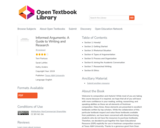
Welcome to composition and rhetoric! While most of you are taking this course because it is required, we hope that all of you will leave with more confidence in your reading, writing, researching, and speaking abilities as these are all elements of freshman composition.
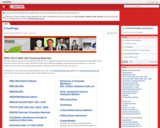
This wiki contains materials for teaching RWS 100 and 200. It supports the work carried out in the RWS teaching internship (RWS 796A) for new TAs. We will use it to share and discuss resources for teaching, pedagogy, and professional development. You are also invited to use it to share work, draft teaching materials, add links, think out loud, introduce yourself, etc.
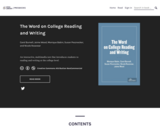
Written by five college reading and writing instructors, this interactive, multimedia text draws from decades of experience teaching students who are entering the college reading and writing environment for the first time. It includes examples, exercises, and definitions for just about every reading- and writing-related topic students will encounter in their college courses.